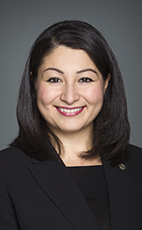Mr. Speaker, the member opposite knows that the Charlottetown accord referendum was not about the way we vote. It was about how the country as a whole would move forward.
The member opposite knows that past referenda on electoral reform have disengaged half of the population.
Let us use the tools available to us in the 21st century to gain the interests and the opinions of as many Canadians as possible. He is not up to the challenge, but we are.

